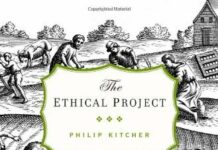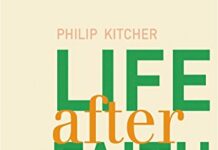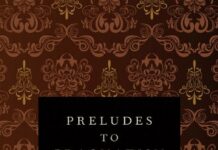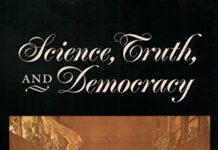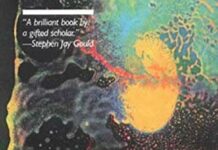
Ebook Info
- Published: 2004
- Number of pages: 253 pages
- Format: PDF
- File Size: 1.23 MB
- Authors: Philip Kitcher
Description
Few musical works loom as large in Western culture as Richard Wagner’s four-part Ring of the Nibelung. In Finding an Ending, two eminent philosophers, Philip Kitcher and Richard Schacht, offer an illuminating look at this greatest of Wagner’s achievements, focusing on its far-reaching and subtle exploration of problems of meanings and endings in this life and world.Kitcher and Schacht plunge the reader into the heart of Wagner’s Ring, drawing out the philosophical and human significance of the text and the music. They show how different forms of love, freedom, heroism, authority, and judgment are explored and tested as it unfolds. As they journey across its sweeping musical-dramatic landscape, Kitcher and Schacht lead us to the central concern of the Ring–the problem of endowing life with genuine significance that can be enhanced rather than negated by its ending, if the right sort of ending can be found. The drama originates in Wotan’s quest for a transformation of the primordial state of things into a world in which life can be lived more meaningfully. The authors trace the evolution of Wotan’s efforts, the intricate problems he confronts, and his failures and defeats. But while the problem Wotan poses for himself proves to be insoluble as he conceives of it, they suggest that his very efforts and failures set the stage for the transformation of his problem, and for the only sort of resolution of it that may be humanly possible–to which it is not Siegfried but rather Brünnhilde who shows the way.The Ring’s ending, with its passing of the gods above and destruction of the world below, might seem to be devastating; but Kitcher and Schacht see a kind of meaning in and through the ending revealed to us that is profoundly affirmative, and that has perhaps never been so powerfully and so beautifully expressed.
User’s Reviews
Reviews from Amazon users which were colected at the time this book was published on the website:
⭐As a retired philosopher of religion, I find this book appealing–especially its emphasis on the glorious, soaring, wordless theme with which the Ring ends; and also its finding parallels in the Judgment theme in Mozart’s Don Giovanni and in Shakespeare’s Cordelia in King Lear. Following Nietzsche, however, the authors reject Wagner’s last opera, Parsifal, and apparently all religion–Christian, Buddhist, etc. Strange that philosophers that can grasp the meaning in a mytho-poetic work like the Ring reduce religious tradition to simple, literalist fundamentalism!The Ring, according to the authors, was written under the influence of Feuerbach’s secular humanist optimism, complicated by Wagner’s own experience of the failure of worldly political utopianism. The ending symbolizes the “death of God,” not merely the death of the Idols, as theologians would have it. The atheist pessimism of Schopenhauer came to seem more realistic to Wagner (with his last opera Parsifal??), but not before he finished the Ring with a ringing affirmation of life and love.In trying to articulate how it is that, in spite of defeat and death, “not everything has been lost,” they come surprisingly close, but are finally blocked by the ghost of logical positivism. In Mozart’s Don Giovanni, the authors see Nietzsche’s Ubermensch; a figure literally beyond good and evil, and not subject to any truth or negative judgment beyond the conflicting prejudices of finite creatures. In the judgment of the authors, the Commendatore, and the transcendent Judgment he symbolizes, is laughable. So also with positive judgment; the final theme of the Ring cannot be “redeemed by Love,” but merely “triumph and vindication of Brunnhilde.” (In whose eyes? If all judgment and truth are relative? If all who judge are temporary, finite, fallible creatures? If there is no Ideal Observer?)
⭐excellent
⭐We are currently (2009)working our way through the Ring Cycle in Los Angeles and I find this an invaluable guide to the deeper philosophic meaning of these operas. It has a useful synopsis of the 4 operas at the end of the book including the hidden action between operas. It gives you a brilliant crash course on 19th century German philosophy with accurate discussions of Feuerbach, Schopenhauer and Nietzsche as viewed through the lens of Wagner. If you have no ax to grind about religion and faith you will enjoy the very detailed reading of the text and music in explicating Wotan’s growth in understanding of his role as law-giver to the World, gradual acceptance of his ultimate failure and the failure of all “Gods” to impose any solution to the human dilemma. You’ll appreciate the poignancy of his attempt to “find an ending,” one that allows him to end his quest with dignity and meaning. The style is clear and elegant and I find the book deeply moving and profound. I also come to understand the young Nietzsche’s adoration of Wagner whose Ring cycle is nothing short of a re-enactment of our attempt to find meaning out of life without the easy solace of religions and blind faith.Parenthetically, it also reveals how shallow our LA Ring is and what a travesty Achim Freyer’s staging has made of this magnificent work. But that is the subject of another discussion.
⭐Written by 2 distinguished philosophers who are also amateur musicians, this book is a very interesting exploration of Wagner’s great Ring cycle. Kitcher and Schacht argue that the Ring is an extended exploration of the existensial dilemma of establishing meaning in life. The analysis is based on a close examination of the libretto, Wagner’s stage directions, the music itself, and what we know of Wagner’s intentions and thought during the prolonged gestation of the Ring cycle. This is a particularly sympathetic analysis of Wotan, whom Kitcher and Schacht present as struggling to establish a meaningful, better, and lawful world. The alternatives to Wotan’s efforts are the beautiful but heedless natural world of the Rhinemaidens and the corruption and brutality of characters like Alberich and Hunding. Wotan’s efforts, however, are ultimately self-defeating, something that Wotan himself appreciates as a tragic destiny. Wotan’s greatest successor is his daughter Brunnhilde, the Valkyrie become human whose ability to combine what Kitcher and Schacht describe as empathic love with eros constitutes a redemptive alternative to Wotan’s struggle to establish rational, lawful order. But Brunnhilde also fails and the plot of the Ring seems to point to unavoidable failure to wrest meaningfullness from the universe. Wagner’s incredibly powerful music, however, indicates that it is Brunnhilde’s efforts to establish meaningfulness that vindicates human existence.This is a very ambitious undertaking and my brief description doesn’t do justice to the careful development of the authors’ analysis. I certainly found it convincing. If anything, Kitcher and Schacht may not go far enough. Their analysis emphasizes human construction of meaning. Wagner certainly thought of himself as a “maker” (kunstler) with a very expansive and typically Romantic view of the constructive power of art. The authors establish the Ring as a sophisticated and powerful allegory-analysis of the effort to establish meaning in life but this can also be seen as an allegory of Wagner’s craft.
⭐the writing style is atrocious. plodding, confused sentences. the introduction took me three tries to get through. the first chapter on feuerbach and schapenhauer is a mess. the sentences are muddled, convoluted garbage. these philosophers (along with nietzsche) are tough enough to grasp when the explanation is lucid.i was hoping for points of view with which to examine subtleties and/or subplots within the ring. what i got was an unreadable drek.
Keywords
Free Download Finding an Ending: Reflections on Wagner’s Ring 1st Edition in PDF format
Finding an Ending: Reflections on Wagner’s Ring 1st Edition PDF Free Download
Download Finding an Ending: Reflections on Wagner’s Ring 1st Edition 2004 PDF Free
Finding an Ending: Reflections on Wagner’s Ring 1st Edition 2004 PDF Free Download
Download Finding an Ending: Reflections on Wagner’s Ring 1st Edition PDF
Free Download Ebook Finding an Ending: Reflections on Wagner’s Ring 1st Edition
